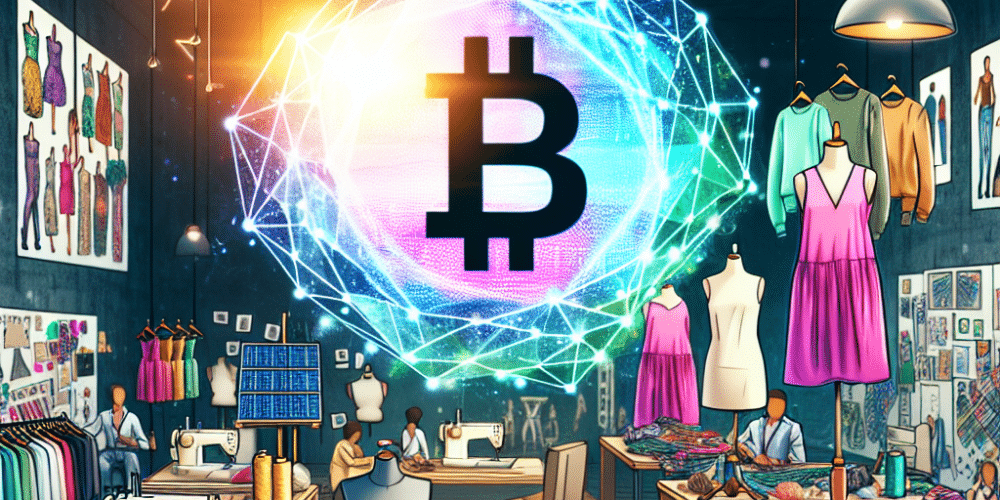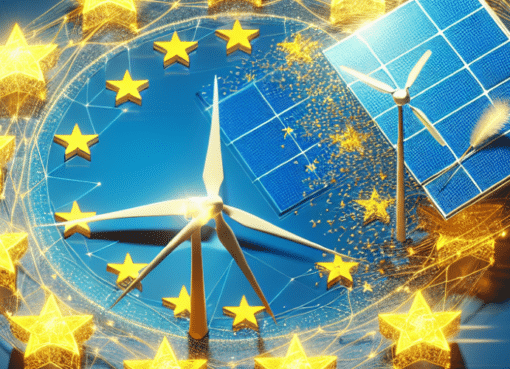In a groundbreaking development in the fashion industry, several high-profile brands have announced a partnership to integrate blockchain technology into their supply chains, aiming to boost transparency and sustainability. This collaboration, including industry giants like Gucci and Stella McCartney, marks a pivotal shift towards greater accountability in the fashion world.
The initiative, launched earlier this week, utilizes blockchain’s decentralized and immutable ledger to trace the lifecycle of garments—from raw material acquisition through manufacturing to final sale. This move is not just about enhancing supply chain management but is a significant step towards reducing the environmental impact of fashion production and combating unethical labor practices.
The Technology Behind the Transformation
Blockchain technology offers a robust solution to several long-standing issues in the fashion industry. By allowing data to be stored on a secure and immutable ledger, it ensures that information cannot be altered, thereby maintaining the integrity of data across the entire supply chain. Consumers can access detailed histories of their purchased goods, which includes information on the materials used, the manufacturing processes involved, and the workers’ conditions.
Environmental and Ethical Implications
The environmental impact of the fashion industry has been a subject of intense scrutiny. According to the United Nations Environment Programme, the fashion industry is responsible for 10% of global carbon emissions and remains the second-largest consumer of water worldwide. By adopting blockchain, brands aim to reduce waste and ensure that the products are made from sustainable or recycled materials.
Moreover, labor violations in the fashion industry, particularly in developing countries, have been a critical issue. Blockchain’s traceability features will help ensure compliance with labor laws and ethical standards by providing transparent insight into the working conditions of factory workers.
Industry Leaders Weigh In
Gucci’s CEO, Marco Bizzarri, expressed enthusiasm about the new venture, stating, “This is not just a technological upgrade, but a redefinition of how we engage with our consumers and how we consider our responsibility towards the planet and its people.” Stella McCartney, known for her sustainable approach to fashion, added, “Blockchain could be the key to enforcing our core values consistently throughout our supply chains.”
Consumer Reaction and Market Impact
The response from consumers has been overwhelmingly positive. In an era where buyers are increasingly concerned about the ethical and environmental credentials of their clothing, the ability to verify a product’s sustainability is a compelling selling point. Analysts predict that this transparency will likely lead to increased brand loyalty and customer satisfaction.
Challenges and Future Prospects
Despite the potential benefits, integrating blockchain into existing systems is not without challenges. Concerns over data privacy, the cost of implementing new technologies, and the need for widespread stakeholder cooperation are significant hurdles. However, as more brands join the initiative and technology advances, these issues could become less obstructive.
Looking ahead, this blockchain initiative is expected to expand beyond luxury brands to include mid-range and budget brands, potentially setting a new standard across the entire industry. Moreover, other sectors are observing this model closely, contemplating similar strategies to enhance their supply chain transparency and sustainability.
The Bigger Picture
This initiative is a part of a larger trend where various industries are exploring the potential of blockchain technology. From finance and healthcare to logistics and now fashion, the applications appear boundless. As these efforts continue to evolve, they could pave the way for a new era of transparency and efficiency across global industries.
In conclusion, the fashion industry’s leap into blockchain technology could signal the beginning of a significant transformation. This initiative not only promises to elevate the sustainability of products but also ensures a fair and transparent supply chain, aligning with the growing global call for environmental and social responsibility. As the project unfolds, it might just set the blueprint for how industries can synergistically merge technology with ethical business practices.




